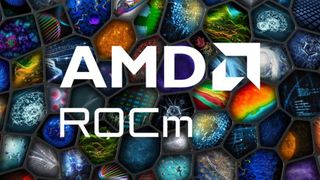AMD has announced the release of Radeon Open Compute platform (ROCm) 5.6, the latest version of its open source platform for GPU Compute. If you are looking to buy a contemporary GPU, ROCM only officially supports AMD Instinct RDNA 2 workstation graphics cards. However, AMD is responding to feedback about challenges to using ROCm on other AMD GPUs and has decided to widen its support. Sometime this fall, AMD will expand ROCm support to more RDNA 2 GPUs and select AMD RDNA 3 workstation and consumer GPUs.

Consumer interest in GPU Compute has grown considerably due to breakthroughs in artificial intelligence and machine learning. AI acceleration has transformed from ‘why would I want that’ into a highly desirable feature. Perhaps this change in the computing universe has taken some by surprise. AMD, for example, includes AI acceleration solely in it Ryzen 7040 Phoenix chips for consumers. In contrast, mobile processor makers have been adding and tuning AI acceleration for several generations now.
AMD ROCm is said to deliver a comprehensive suite of optimizations for AI and HPC workloads. It boasts “fine-tuned kernels for large language models, support for new data types, and support for new technologies like the OpenAI Triton programming language.”
Initial support for ROCm on RDNA 3 GPUs is due in the fall. The first such graphics cards to get official support will be the 48GB Radeon PRO W7900 and the 24GB Radeon RX 7900 XTX, according to the AMD Community blog. Support for additional RDNA 3 cards and expanded capabilities will be added over time.

In the meantime, AMD’s newest ROCm 5.6 release sounds like it will be less fussy about which GPUs it will run on. AMD says that it has heard of community members grumbling about driver issues on unsupported GPUs, but that it has “fixed the reported issues in ROCm 5.6 and we are committed to expanding our support going forward.”

